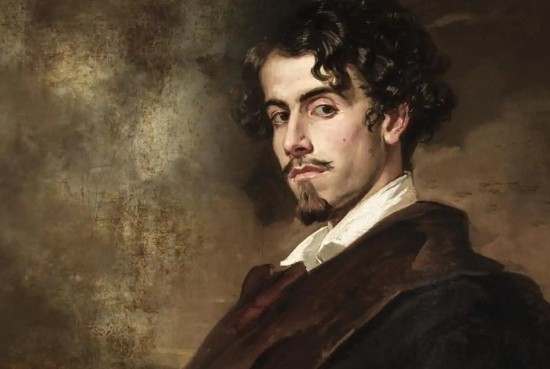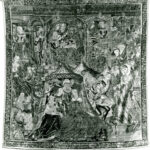Gustavo Adolfo Bécquer, born as Gustavo Adolfo Domínguez Bastida, was a Spanish poet and writer who is considered one of the most important figures in Spanish Romanticism. Born on February 17, 1836, in Seville, Spain, Bécquer is renowned for his evocative and melancholic poetry, as well as his innovative use of language and imagery. His works have had a significant influence on Spanish literature and continue to be celebrated for their profound emotional depth.
Bécquer was born into a creative family. His father, José Domínguez Bécquer, was a painter, and his brother, Valeriano Bécquer, became a notable painter and illustrator. Despite this artistic background, Gustavo Adolfo Bécquer initially pursued a career as a painter himself. However, he soon shifted his focus to literature and writing, which proved to be his true calling.
In his early years, Bécquer’s life was marked by frequent relocations due to his father’s profession. These experiences exposed him to different regions of Spain and their cultural diversity, which would later influence his poetic style. Unfortunately, his family’s financial instability and his father’s early death in 1841 added further challenges to Bécquer’s upbringing.
Bécquer’s literary career began to gain traction when he moved to Madrid in the early 1850s. He became part of a vibrant literary and artistic scene, where he met and formed friendships with other influential writers and intellectuals of the time. Bécquer’s works started appearing in literary magazines, including El Contemporáneo and El Museo Universal, where he published his first series of “Rimas” (Rhymes) in 1858. These verses showcased his innovative use of language and his ability to capture profound emotions, particularly themes of love, longing, and the transience of human existence.
The “Rimas” became Bécquer’s most celebrated work and secured his place as one of the foremost poets of Spanish Romanticism. Comprising both lyrical poems and prose poems, the collection delves into themes such as unrequited love, the beauty of nature, and the metaphysical exploration of the soul. Bécquer’s verses, characterized by their musicality and introspection, are often imbued with a sense of melancholy and a profound longing for an idealized and unattainable love.
Bécquer’s contribution to Spanish literature expanded beyond his poetry. He also wrote prose, including his collection of legends titled “Rimas y Leyendas” (Rhymes and Legends). Published posthumously in 1871, this collection encompasses a series of mythical and supernatural stories that combine elements of folklore and Gothic literature. Bécquer’s ability to weave together the eerie and the lyrical creates an enchanting ambiance throughout these tales, solidifying his position as a master storyteller.
Tragically, Bécquer’s life was marked by personal and financial struggles. Despite his literary acclaim, he struggled to secure a stable income, often relying on sporadic contributions to magazines and newspapers. Additionally, his health deteriorated over time, and he battled tuberculosis, which ultimately claimed his life at the young age of 34 on December 22, 1870.
Despite his relatively short life, Gustavo Adolfo Bécquer’s contributions to Spanish literature remain invaluable. His poetry and prose continue to be studied, celebrated, and admired for their emotional depth, lyrical beauty, and introspective exploration of the human condition. Bécquer’s legacy endures as a testament to his profound understanding of the power of language and his ability to convey the universal complexities of love, longing, and the transient nature of existence.
Sources
1. Biography of Gustavo Adolfo Bécquer – Fundación Gustavo Adolfo Bécquer
2. Gustavo Adolfo Bécquer – Encyclopedia Britannica.
3. Gustavo Adolfo Bécquer – Poets.org







